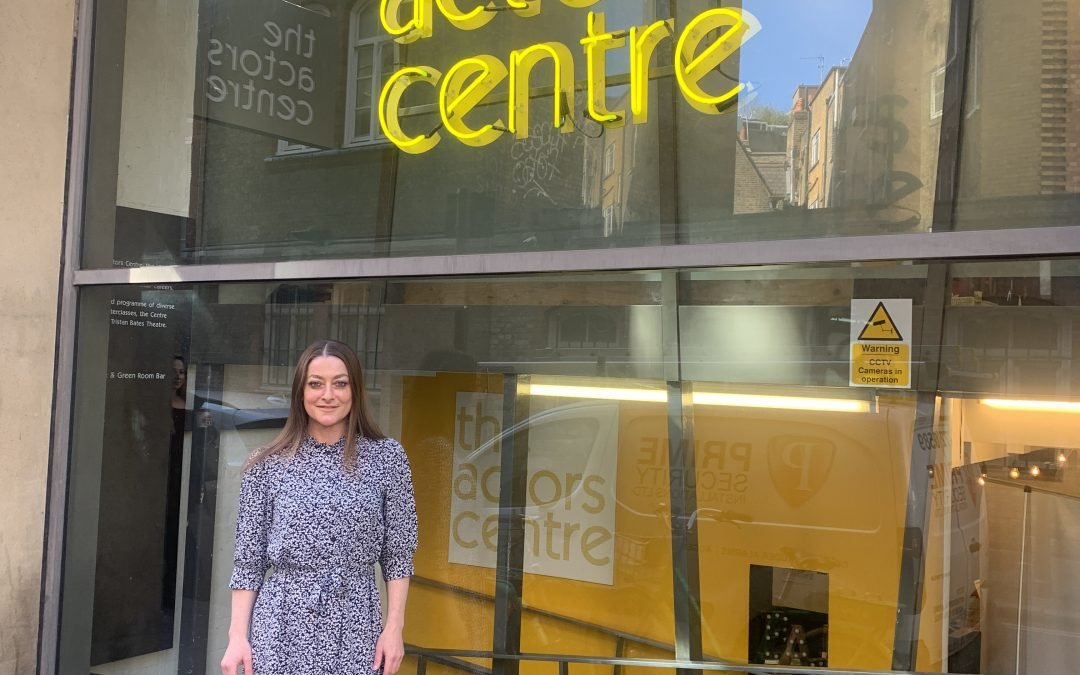
New CEO Announced for The Actors Centre (Summer School)
By Amanda Davey
Established in 1978, The Actors Centre is the UK’s leading artistic and professional development organisation supporting actors and creatives throughout their journeys/careers. Through a programme of diverse workshops, masterclasses, company projects and conversations (led by renowned practitioners from the worlds of theatre, film and television) The Actors Centre provides an essential space in the heart of the west end for artists to network, to share, to create, to thrive.
We deliver an eclectic mix of original, evocative, diverse and challenging opportunities to assist actors and creatives in developing and honing their craft. At the core of our organisation is a commitment to supporting artists – facilitating opportunities for emerging, as well as established, artists and companies.
Our flagship space, the Tristan Bates Theatre (estab. 1994) has become a celebrated off-West End venue, soon to be presenting high-quality work alongside UK, European and world premieres of plays and musicals. The John Thaw Studio, which stages the John Thaw Initiative, will see the introduction of one-week runs for work-in-progress productions, which will also include free rehearsal space prior to first performances, as well as access to the management team at The Actors Centre for advice and guidance. This unique space hopes to open doors for creativity and be a vital testing ground for provocative and engaging new work, which may otherwise go unheard and unseen in today’s divisive political climate.
This is an incredibly challenging time for the arts and the country more broadly. In moments of despair and division, the creative industries have the power to bring people and communities together, contributing to social inclusion, cultural diversity and human development. The creative industries are also of growing importance to the economy, and in the UK are now worth more than £100 billion annually and employ more than three million people. There are of course major concerns following Brexit; freedom of movement for artists, and the government’s recent decision to withdraw from the EU Creative Europe programme, decisions that will sadly have ramifications for generations of artists and audiences.
The industry has changed beyond recognition over the last ten to twenty years, people access it in different ways, and there is quite rightly and belatedly a recognition that talent is found in a variety of different pools. The way in which we perceive art has also changed, in part due to the advancements in digital technologies, we have become a society that consumes, culture has become a product, to provide entertainment, or generate tourism, there is a perception that to be successful one needs to be selling, either themselves or their work.
As public subsidy to the arts is reduced, and the social, moral and cultural value of the arts is underplayed, or neglected, creative organisations find themselves conflicted. To continue benefitting from monies invested from central, and/or local government, match funded through trusts and foundations, in order to prove themselves to be both relevant and resilient they increasingly become the gatekeepers to success, they programme according to taste and sales as opposed to art and artistry. The outcome of which is that both organisations and artists are increasingly less likely to be subversive, to take creative risks, through fear of losing funding by having monies reduced or cut completely.
Those studying pay an extortionate amount of money annually in terms of training; there are now thousands of students in drama schools, in further, higher, or continuing education, they are paying for a service and, as such, expect a return on their investment. That return is success (whatever each individual deems success to mean for them). There is an expectation of instant gratification, of fame rather than artistry which, being a graduate means immediate employment rather than acknowledging that it is just the start of the journey, one needs to hone one’s craft, to develop, to find one’s niche, to be creative.
It is against this backdrop that I take over as Chief Executive of The Actors Centre, a daunting but incredibly exciting prospect. I don’t sit here and cast aspersions of everyone else from a position of supposed power. As an organisation, we too need to refocus our thinking, and realign our programme. There is a huge legacy, and lots of good work and examples to follow however, as an organisation we also need to acknowledge that we have not always gotten it right. We haven’t conversed with, listened to, or adapted in times of change. I hope that, along with the team, and the wider Actors Centre family, including those not yet engaged, we will start to practice what we preach. I would like the result of this will be that The Actors Centre becomes a place for actors/artists to make work, to take creative risks, to collaborate, to fail, to be radical and to develop one’s craft. I hope that it is not only a space that reflects and responds to the sector, but is a space in which our members can learn how to navigate and thrive in these often difficult times, but essential industry. Now, more than ever, it is imperative that at The Actors Centre, our doors are always open!
